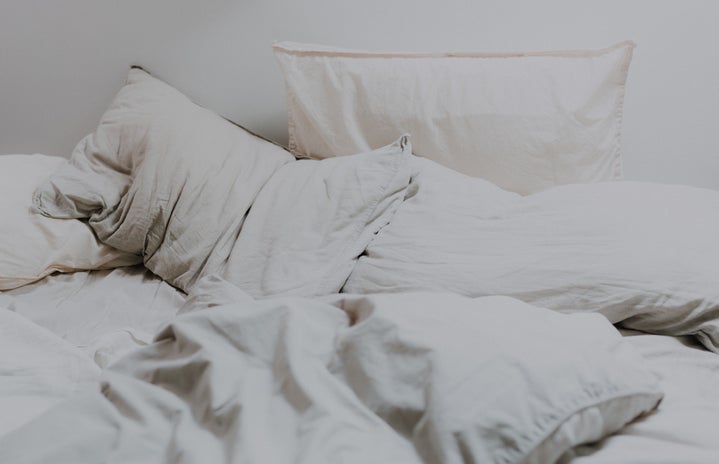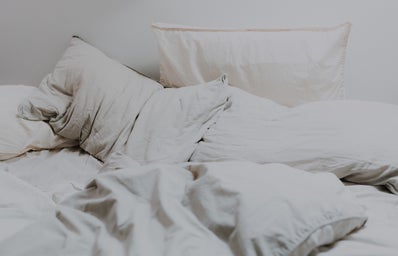The Her Campus National Editors write about products we love and think you’ll love too. Her Campus has affiliate partnerships, so we get a share of the revenue from your purchase. All products are in stock and all prices are accurate as of publication.
As a college student, it is difficult to always get enough sleep. But without sufficient rest, it can feel impossible to make it to all the eight a.m.’s. During the first semester of college, I learned these three tips to make sure I am well-rested even after staying up late or getting up early.
My first tip is to take a magnesium supplement an hour before you want to go to sleep. Magnesium is a muscle relaxant; taking it before bed will help you relax faster and sleep deeper. I used to take melatonin occasionally, but it sometimes caused strange dreams, and it made me feel groggier the morning after taking it. If you have had a bad experience with melatonin, magnesium is a great alternative. There has been a TikTok trend of making “sleepy girl mocktails,” which consist of cherry juice (which contains magnesium), a magnesium supplement, and a prebiotic soda. This is a great treat to include magnesium in your nighttime routine, but it can be a hassle to keep all these ingredients on hand and possibly difficult to prepare this beverage in a dorm without a kitchen. A simpler and more budget-friendly option is to purchase a supplement from any grocery or drug store.
My second tip is to limit light before bed. I recommend doing your nighttime routine in low light. Instead of using a big overhead light, turn on a lamp or Christmas/LED lights. Bonus points if the light is warm-toned. Having a dim room helps your body relax and begin producing its own natural melatonin, helping you fall asleep faster. A sleep mask is also a great way to limit light exposure. Blocking out any light will help you fall asleep and stay asleep faster. After getting into the routine of putting on my sleep mask right before I went to sleep, I started to feel sleepy as soon as I put my sleep mask on. I also am not as easily awoken by outside factors as I fall asleep, like my roommate moving around or doing homework. I prefer a silk sleeping mask because it is gentle on my skin and hair and slides off my face by the morning, so I can be woken up by the sunlight. Wearing a sleeping mask also keeps me from checking my phone after I lay down.
My final tip is to do a quick stretching routine before getting in bed. I started doing a little stretching routine last semester, and it has helped me relax and get better sleep. My roommate also does this, and it makes for a great time for us to catch up after our day. You can have as long or as short of a routine as you like, and there are also great YouTube videos that lead you through meditations and stretches. My stretching routine takes less than five minutes, and I focus mainly on stretching my legs. Stretching before bed also aids in muscle recovery for lifting and running and helps prevent future injuries.
These tips have helped me wake up feeling rested and ready for every day. Good sleep is an important tool to be successful and prepared for your busy college schedule! Even if you can’t get a full seven to nine hours of sleep each night, these tips will help you fall asleep faster and get deeper sleep without feeling sluggish in the mornings!


